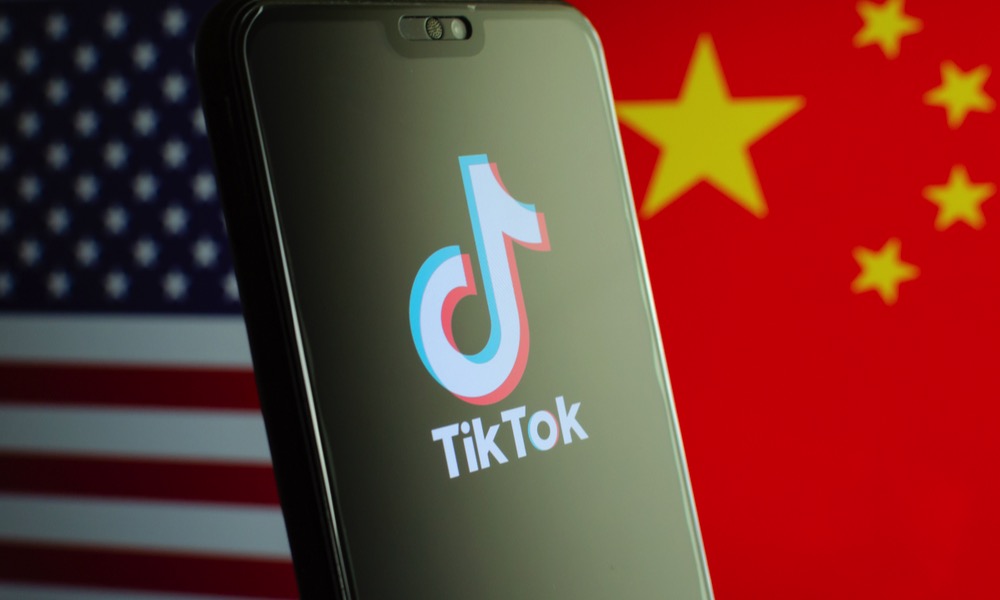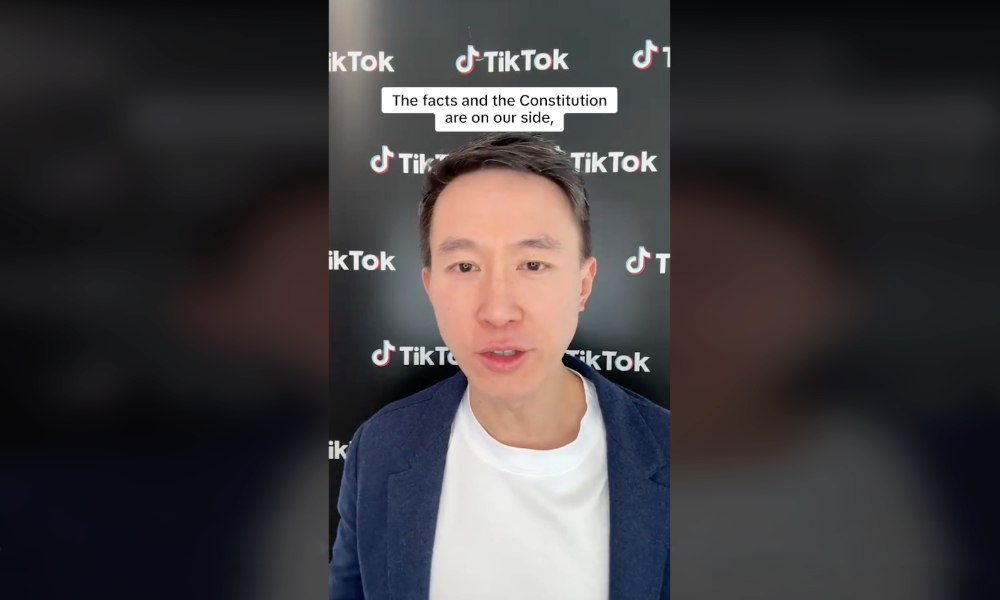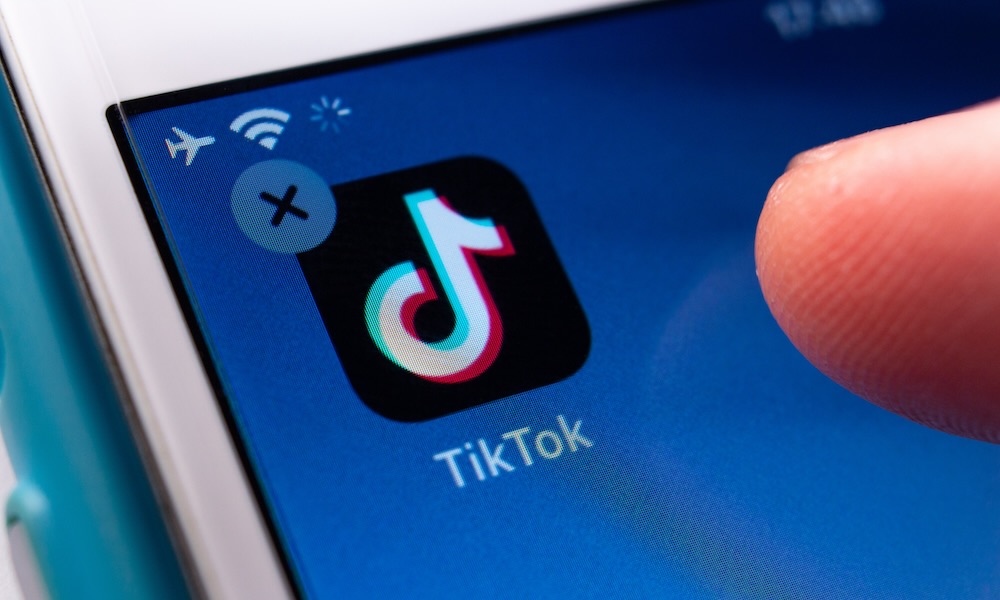TikTok Set to Be Banned in the US on January 19
 Credit: Ascannio / Shutterstock
Credit: Ascannio / Shutterstock
Toggle Dark Mode
Smartphone users in the US may soon be deprived of TikTok as the US government continues its move toward a ban on the popular social media app.
The end has been looming for TikTok ever since the House of Representatives passed a bill in March that would block TikTok and other Chinese-owned social media services from mobile devices in the United States.
Titled Protecting Americans From Foreign Adversary Controlled Applications Act, the bill passed with a 325-65 vote in favor. It similarly sailed through the Senate, and then the clock began ticking when President Biden signed it into law in April.
The US government banned TikTok from government-owned devices in late 2022, following concerns that it was collecting vast amounts of user data and storing it on servers in China. Several other countries, including Canada, Australia, Taiwan, the European Union, New Zealand, and the UK, have instituted similar bans on government employees. However, the new bill passed in March would block TikTok from operating within US borders entirely — and prohibit Apple and Google from offering it on their respective app marketplaces.
The text of the bill didn’t necessarily mandate an outright ban of TikTok; it merely stated that it couldn’t operate as long as it was controlled by a Chinese company. It included a “divestment period” to give its owner, ByteDance, time to sell it off to a domestic company or, at least a less “adversarial” foreign company.
However, ByteDance made it clear that it would shut down TikTok before selling it. TikTok CEO Shou Zi Chew vowed to fight what he considered an “unconstitutional ban,” stating in a TikTok video that “the facts and the Constitution are on our side, and we expect to prevail again.”
At the time, sources said if TikTok’s legal challenge failed, it would simply shutter the service entirely in the US, which seems likely as there are no indications it’s been looking for a buyer.
TikTok was given five months in the original bill, but the senate extended it to nine while also giving the president the power to extend it by another three months if ByteDance needs more time to work out a deal with a potential buyer.
This leads us to where we are now. The New York Times reported today that TikTok hasn’t had any success convincing the courts to overturn the new law. Three judges in the US Court of Appeals for the District of Columbia Circuit handed down a ruling this week, denying TikTok’s petition.
While TikTok is expected to make an appeal to the Supreme Court, there’s no guarantee it will even agree to hear the case, much less decide in the company’s favor. Even so, the clock is still sticking; with the divestment period ending on January 19 — ironically one day before President-Elect Donald Trump takes office — the company has limited time to make that appeal.
What the President-Elect can or will do about this remains a mystery, as Trump’s attitude toward the Chinese-owned social media service has flip-flopped over the years. During his first term, President Trump ordered “untrusted” Chinese apps like TikTok and WeChat banned, with TikTok given a similar ultimatum — sell to a US company within 45 days or be blocked. In the executive order issued on August 6, 2020, Trump cited TikTok and WeChat as threats to national security, citing concerns that the Chinese government had access to the data stored by the service. Trump later extended that to 90 days, and at the time some believed that Microsoft or Oracle might pick up the service, but ByteDance declined to sell.
In late September of that year, ByteDance succeeded in getting a preliminary inunction from the US District Court for the Northern District of California. Six months after President Joe Biden took office, he signed an executive order revoking the Trump Administration’s ban on TikTok and ordering a new investigation on whether the app represented a threat to national security.
However, Trump flip-flopped earlier this year, presumably in light of his belief that Facebook represents an existential threat, and TikTok may be the only social media service holding it at bay. In a post on Truth Social opposing the ban, Trump stated that “If you get rid of TikTok, Facebook and Zuckerschmuck will double their business. I don’t want Facebook, who cheated in the last Election, doing better. They are a true Enemy of the People!”
However, it’s notable that Trump’s nominee for chair of the Federal Communications Commission (FCC), Brendan Carr, was vocally opposed to TikTok in 2022:
Further, Senator Marco Rubio, the top Republican on the Intelligence Committee, who also happens to be Trump’s pick for Secretary of State in the new administration, voiced his support for the original bill earlier this year, encouraging TikTok users to pressure ByteDance to sell to a company “not controlled by the Chinese government.”
Nevertheless, a spokesperson for the President-Elect’s team said in November that “he will deliver” on a plan to rescue TikTok, but there are no specifics on how he may do so. While the new law may give him the authority to extend the deadline by three months, even that’s unclear as it the divestment period will have expired by the time he officially takes office.









